My Depression Journey: Experience, Feelings, Treatment and Recovery.
| Note: The following article mentions depression and the passing away of a close relative. Kindly proceed to read the article with caution. Seek professional help if you or someone you know is experiencing symptoms of depression or depressive disorder. |
The big D! No, it is not what you are thinking my dear reader. This is the other D that does not receive a lot of attention…at least the good kind. You can expect a lot of different things from different people experiencing depression.
My experience of depression and the entire process from diagnosis to treatment and now 5+ years of recovery and remission, has led to the conclusion that it is no small feat. Staying in remission for that duration helps realize how strong one’s determination can be and how hard work can truly help you shine.
What Is Depression – From Experience

It is also important that I highlight the support that helps us stay in the discipline. The support I received from my family, friends, my fiancé and my therapist mean the world to me. They were with me through all the symptoms, no matter how bad they got.
It is also important that I highlight how close you get to yourself. Once you are determined to change the situation and flip it around, you can really get there.
You find yourself wondering how the same mind, that was hell bent on proving you are all the things you aren’t, has now helped overcome those waves of sadness among other symptoms.
As said earlier, it shows up differently for people and there is not one story either mine or someone else’s that will help someone understand what depression is. Universally understanding how depression can change someone’s perception about depression. However, it is not possible for someone to understand how everyone feels when they are experiencing the symptoms.
This is why this blog is to understand how depression altered my life, as candidly I can.
The experience of depression is personal for anyone, but someone must share it with the world. A way to let others who are experiencing it know that you are not alone in this journey, and you will defeat it. Take it from me.
There are different aspects of the journey which I will shortly share with you as the article unfolds before you. If anywhere you find the information getting overwhelming, I would request you to stop reading right there and if you feel like it, start reading right where you left off.
My journey with depression was somewhat similar to what I had read because I am big on reading, so I knew what to expect. I think one reason is that I was able to stay resilient throughout the treatment and recovery process. So, let’s dive right into it.
Depression & Its Effect on the Human Mind & Body
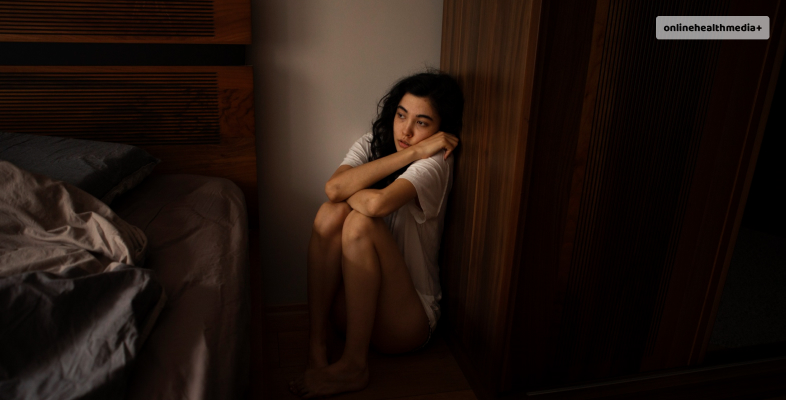
My symptoms began when I was a teenager. The trigger for me was the death of my grandmother whom I was very close to. Contrary to popular belief, depression for an individual begins after a trigger that makes them prone to a significant change in the brain chemistry. No there are no beakers and test tubes inside the brain that are exchanging liquids.
Brain chemistry is when the neurotransmitters undergo a change, which can thus cause a change in mood. Neurotransmitters are chemicals in the brain that play a role in depression symptoms. Some of the most prominent neurotransmitters that play a role in heightening the experience of depression symptoms are – serotonin, norepinephrine, and dopamine.
These three play the main role in determining how severe the symptoms will be. My therapist found my knowledge of the condition as well as the curiosity to know more as one of my strong traits.
They encouraged my curiosity while also using it to help me take active participation in my treatment and recovery. And I would agree that their strategy to help me out in this way was one of the reasons why I was able to stay in remission for 5+ years.
I was a teenager when I first went to a professional therapist. I also recently found that nearly 5% of the adults experience symptoms of depression. Which is a little higher for teenagers, especially in recent years.
The experience of depression got worse a few months after my grandmother’s passing away, because of bullying in school. I was in an all-girls school and like Olivia Rodrigo’s said, it can be quite brutal.
The first visit to my therapist and I was much lighter after they told me what goes on in the brain. Obviously, they disclosed that information in a very age-appropriate manner. I was able to understand how it all occurs and why I was experiencing it.
Diagnosis Of Depression: How I Knew I Have It
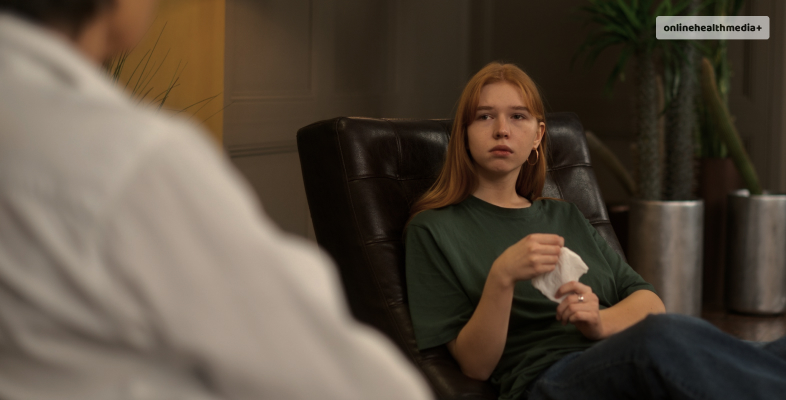
I found that there is no randomness to this, there is a lot that goes on in the brain and the entire body. The initial signs that something was wrong with me were when I got very irritable and would not speak to anyone for days.
Monosyllabic answers led to my family and friends noticing that something was really with me. Then it spilled to poor concentration and feelings of emptiness. It got to the point that I could not even realize I was hardly eating, or moving around, enjoying the things that I loved doing.
One day I realized that I had lost a significant amount of weight, and I hardly had any energy to do anything. My parents helped me go to a therapist and my recovery began within a few weeks. A few exercises that are personalized for everyone, and I was hungry for food and had ample energy.
This wasn’t possible after one or two sessions with my therapist. We were able to reach this stage where I was eating properly again after several sessions. These felt like 100, but I gradually found my footing again.
The therapist used different techniques to give me a diagnosis of depression. I answered a couple of questionnaires, and they also investigated my health history. During the sessions, I was mostly talking to my therapist, and it was mostly a conversational type of treatment I feel.
Another reason why I thought of sharing my journey with you all is to spread awareness of the reality of therapy. People think therapists do not help and just take our money. This is not the case, especially when you are consulting a reputed professional.
What Else Did I Experience: My Ups and Downs During Therapy
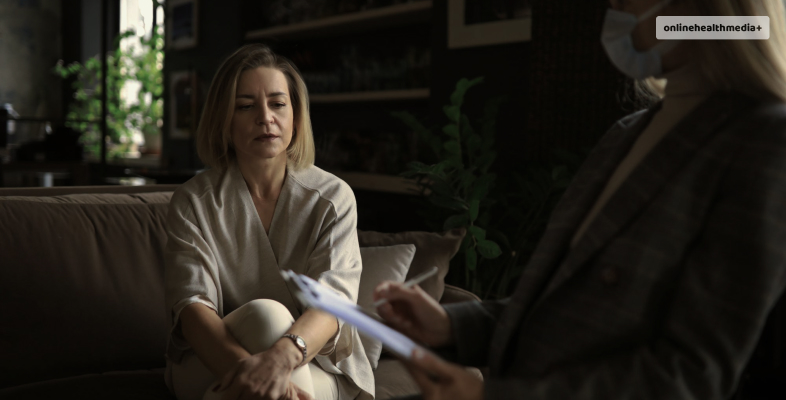
| Trigger warning: The following section mentions self-harm and anxiety attacks, proceed with caution. |
On one hand I was able to check off having three meals in a day, and on the other hand, I was struggling with crippling anxiety and loneliness. During the day I was able to laugh and enjoy the company of my close friends, while come night, it was different.
This is when I was going through my depression spikes. It was the absolute worst and every day I felt as if I was hardly making any progress. My depression was hitting me badly and right where it would hurt me the most. I could feel it my gut that I was struggling to have control over my anxiety which would creep in with the night.
As soon as I was alone in my room, I could feel it in my gut that I was about to burst into tears any time now. I shared this with my therapist, and they understood where I was in my recovery, they said it was a part of the process and to look at it like a monster that is trying to drag me down the spiral again.
It made sense that maybe that is all that it was. But the feeling I was going through made it hard to believe that I could become better with time and if therapy was at all working. In retrospect I can tell you to trust the process. You may be feeling at your lowest around the clock, but you must make sure you can stay on your treatment.
Feeling Lonely All The Time
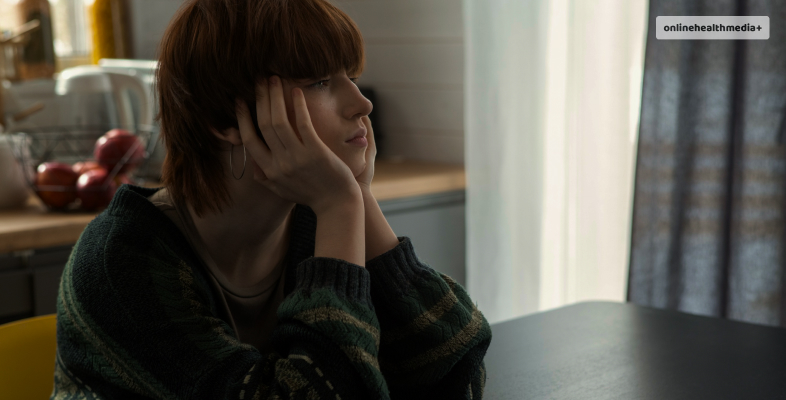
This was one of the hardest things to fight while I was in therapy. The more I could see myself laughing with my friends, who, as I mentioned, were one of the greatest supporters during the recovery.
I was feeling so alone, it was as if I wasn’t there with them, and I was looking at that moment from a window.
My brain was my enemy in one moment and would turn to be one of the biggest supporters in the next. I was convinced it was not the same brain that was helping me understand my experience, empathizing and building my willpower. It was becoming harder for me to concentrate on the sessions as my brain would constantly try to convince me it was all for nothing.
I would not get better. You know the voices in your head that keep belittling you? I would give you a huge heads-up that you DO NOT NEED TO LISTEN TO IT.
That isn’t your gut feeling speaking, it is a more complex phenomena that simple words can describe, but my therapist ensured that it was part of the recovery. There is a huge possibility that my subconscious was just verbalizing the fear I was housing in my heart.
That I wouldn’t become better even after seeking professional help. It was the hopelessness taking full advantage of the low confidence I had in my treatment. After saying Yes to almost all the questions that my therapist asked me, I was completely shattered. It was obviously hard to overcome all of this and now that I look back, I can tell you that it was an important part.
It made me realize how powerful our mind is, and how easily we can control it to gain the power back. In addition, I was able to see how I can gain my confidence back to fight the diagnosis.
Wanting To Constantly Cry And Be Away From People
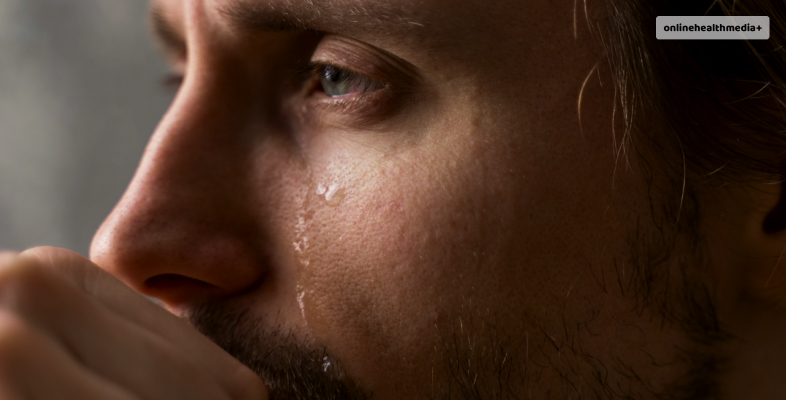
One of the constant feelings was to curl up and cry my heart out, but neither did I have a particular reason to put my finger on, nor did I have a place to do that. Because crying at home meant I am explaining to a very concerned set of family members why I am bawling. That could be said, but what would I say when they would ask me why am I crying? I had no answer for that.
I was just numb and kept feeling sad for no apparent reason and it got to the point where I was unable to understand why I was feeling that way and why I could not understand it then. The idea that no one will be able to understand what I was going through, or any part of my experience.
It becomes even more challenging to explain what I was going through then because of how my brain remembers it as a foggy memory. My therapist said it may be because it was so awful for me that my brain is trying to conceal.
Now that I was recently going through my journal for the article, I researched this and found that there is scientific evidence backing this up. People with depression can experience short-term memory loss.
Plus, there I was amongst people who make me truly happy, and we add in to each other’s lives, but I was still sad. This is something I would want to forget.
Feeling Anxious About The Future
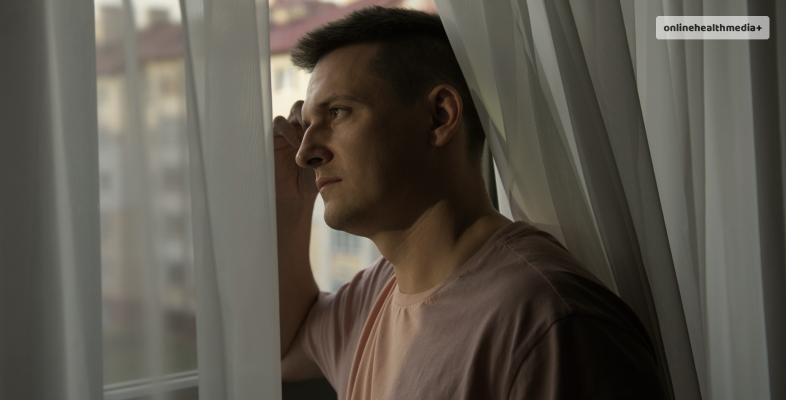
One thing I can clearly recall is feeling the constant fear of what my future will look like. According to my therapist this showed that despite my suicide ideation, I was caring about living. The fear of the future was me caring about my future and trying therapy was me throwing myself a lifeboat.
The inability to cry or bawl my eyes out for the sake of feeling light inside, would lead to a bad anxiety attack which was making it so hard for me to continue. The feelings that I was going through made me feel as if I would not be able to handle all that was going on in my head.
And with the strong urge for all of it to end soon, I would be in the middle of an anxiety attack. The loneliness that was engulfing me made it difficult for me to focus on the treatment plan that was set up. This is how I found myself in an endless loop of anxiety attacks and loneliness. This pushed me back to my habit of cutting and made me think of cutting again, one month after I stopped it.
Struggle With Self-harm
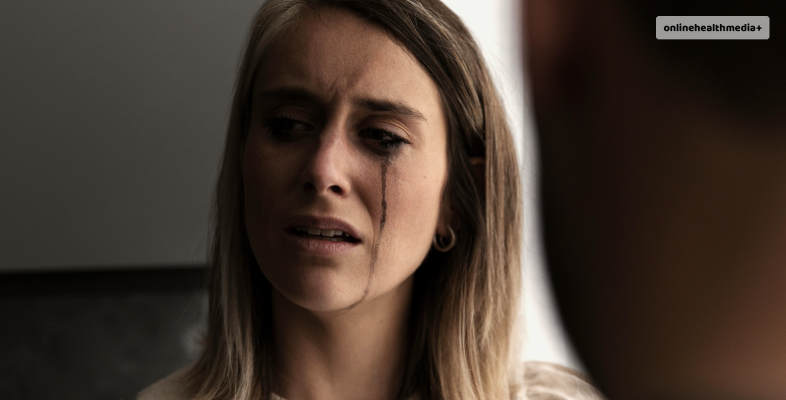
It gets very difficult to stop this habit once you get the strong urge to mark again. When I shared this with my therapist, they said that these old habits can come back. However, because I did not know better, I also did not know how to control it.
I think about cutting again because of the way it makes me feel something else other than the numbness. It is beyond my control, and it is so strong that I cannot help myself. The act of cutting itself helps me think about something else other than how alone I feel. It also gave me an escape from the anxiety attacks.
After three and a half years of struggling with this, I got it under control with the help of my therapist. There was not a lot that I was able to process, thus, it gave me even less to cling to when I would think of cutting myself.
Then Started The Feeling Of Nothingness
No doubt I would say this was one of the hardest parts of my journey with depression, as it was happening in a loop. First, I would struggle with feeling too sad, then would come loneliness and solitude and finally, self-harm and numbness.
This was all happening in a loop, simultaneously with the treatment and therapy. This is what made it quite hard for me to bring my urge to cut under control. The period of numbness was longer in comparison to the other phases.
Therapy sessions allowed me to understand that it was because of my inability to handle what I was feeling and thinking, did I face this. My brain was already overridden with all the thoughts, and the anxiety attacks would just make it worse for us.
It got to the point that I was completely shutting off my brain, and my emotions in a way so I did not feel anything. And when I wanted to feel something, just anything, my mind would dial back to cutting. And no, it will never be a justified solution.
The ability to feel again was something I lost during my depression. And it was one of the biggest losses I had experienced, because I have the innate ability to feel things. I am an empath, and it makes it difficult to not feel anything, which is what I was struggling with the most during that time.
Now, it has been five years since I have cut myself or even thought of doing that. It is one of the biggest achievements for me I would say, and it is easily the best thing that has happened.
How Did I Bring My Thoughts of Self-Harm Under Control?
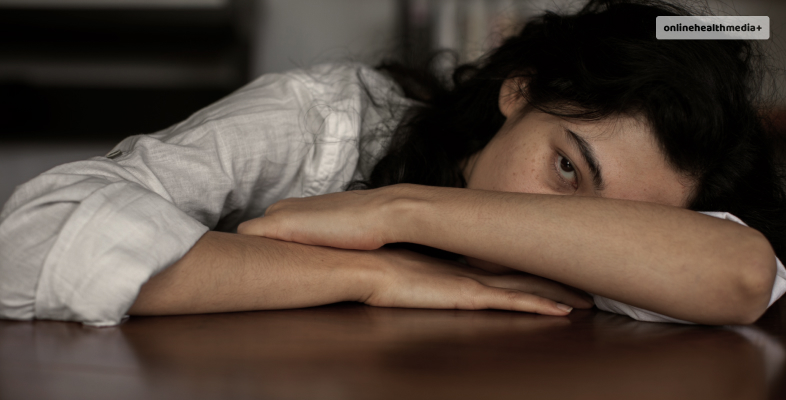
Initially, I would say during the first couple of years of my recovery, I was unable to even avoid thinking of cutting myself. But gradually with the help of my therapist I was able to bring it under control.
They helped me develop healthy coping skills to bring my thoughts under control. This way I would have a healthy mechanism to control my anxious thoughts, and depression symptoms. Their suggestion included pushing myself to spend time with family and friends when it was the first activity I would want to skip.
These and other such strategies help control the urge to self-harm and fight the urge to stay alone. I found books to be my constant companion during this time. It was fantasy novels that would helpescape my thoughts. I was also using reading and movies as an escape from reality as it was helping me not feel alone.
This along with the other treatment options that were suggested by my therapist helped me get to where I am today.
Depression Treatment That Worked for Me

Theoretically, there are several treatment options that help in controlling the symptoms of depression. Moreover, as the experience of depression is different for different individuals, it is more important for the therapist and the mental healthcare professional to develop a plan that is best for the individual.
There are several treatment options that are commonly used in case of depression, even major depressive disorder. The following treatment options are common:
- Medications such as antidepressants.
- Psychotherapy is a type of therapy where the individual experiencing depression is taught to change their perspective.
- Brain stimulation therapies which come into the picture if medications and psychotherapy do not work
- Lifestyle changes along with the existing treatment plan is one of the most common changes that your healthcare provider can make.
These may include getting physical activity, at least 30 minutes of walking to boost your mood.
- Eating regularly, incorporating healthy meals in your diet
- Trying to maintain a routine for yourself, such as through maintaining a bedtime and wake-up time
- Trying to connect with people instead of shutting them off is another treatment option that helps combat the feelings of loneliness
- Avoiding the use of nicotine and other substances which can help control the extent of symptoms
These are a few of the commonly used treatment options that help in controlling the symptoms of depression, thus, helping in recovery and remission.
A recent independent survey conducted with a small batch found that most people opine therapy. Moreover, alternative methods to be helpful for people with mood disorders such as depression.
The following are the findings of the survey with an explanation.

The survey mentioned at the start of this section had a small cohort, nearly 50 people. This was part of a pilot study into the changing opinion on depression treatment. Out of the 50 people, nearly 5 opted out middle of the study for miscellaneous reasons and the remaining 5 did not respond to the survey within the cut-off time.
The participants were asked the following questions:
Q1. Have you felt sad or empty despite indulging in activities that you like?
This question was to know if the participant had any recent experience of two of the most common symptoms of depression or major depressive disorder.
40 participants responded to the question and out of them, nearly 77.5% of them responded with a “Yes.” The rest 22.5% of the participants said they did not experience either of the two symptoms.
Q2. How often did you notice yourself feeling sad or empty despite doing things that you had a say in (chose to do)?
This question was another way to ask if they were experiencing the symptoms and if they missed out on noticing this symptom. It is a common phenomenon for symptoms of major mental health issues to go “unnoticed” due to the stereotype related to them.
However, these were the following results:
Out of the 40 responses, 40% of the participants sometimes found themselves feeling those symptoms, whereas 30% of them said they often experienced it. The rest 20% rarely felt either of the symptoms and 10% were always finding themselves not enjoying activities that were chosen by them or were once enjoyed by them.
Q3. Generally, what helps you feel better? Consider the image for common activities.
This was a question that had references from an image listing (as shown) all the common activities that can make one feel better. As per recent research, mindfulness helps in improving the symptoms of depression and other mood disorders.
Nearly 47.5% of the participants shared that they were engaging in most of the activities to feel better. This was important in this study as it solidifies the theory that more recently, people are leaning towards mindfulness techniques to ‘feel better.’
Nearly 40% of the participants said that they were frequently practicing more than one of the activities to feel better. And the rest, 12.5%, said that they often engaged in one of the activities.
Q4. Scientific research suggests medications have side effects that can worsen the experience of depression for individuals. Alternative treatment options such as therapy are shown to have better results in preventing a relapse. Do you agree?
As per this study https://www.nature.com/articles/s41380-022-01770-w there is evidence to suggest that therapy (psychotherapy etc.) is an effective option than medication.
A whopping 60% of the participants agreed with the finding, proving that alternative treatment methods can help a patient with depression. Nearly 32.5% of the participants had a neutral stance on the finding and the rest 7.5% strongly agreed with the study’s conclusion.
Q5. Which of the two do you think will be better for a person experiencing depression. (Refer image.)
This question gave the participants a clear choice, showing the two treatment methods common for the treatment of depression. The participants responded as follows:
Close to 50% of the participants, 47.5% to be exact, said both non-pharmacological and pharmacological methods can be helpful. The remaining 42.5% of the participants said that non-pharmacological methods on their own were enough.
Whereas the remaining 10% of the participants said they believed medications were better on their own.
This led to the conclusion that alternative methods for treatment of depression can work better. Such as therapy ( talk therapy, Cognitive Behavioral Therapy.) Or any other type that the physician finds suitable for the patient. These methods are also scientifically shown to work better when combined. It includes drugs such as antidepressants, or other symptom-related medications.
The small survey helps conclude that more and more people are becoming aware. Mainly about holistic approaches that can work for alleviating symptoms of mental health issues.
Apart from the independent survey, there are other research. These prove how different mental health conditions and other systemic conditions can benefit from a holistic treatment approach.
How’s Recovery Going For Me
So far, there have been different occasions where I have thought of my experience with depression. Specifically, how different the present day feels. The recovery process has been a commitment that I have made to myself. It is for the sake of myself and my loved ones.
As I have repeatedly mentioned throughout the article, my pillars of strength were my family, and friends. Also, my therapist and somewhere all along my own will. The will to overcome how I was feeling five years ago, since so many years.
I have been looking at myself with a lot more kindness, not letting my thoughts overpower my being. And overall fighting the urge to self-harm. Be it physically or mentally. It is even more important to mention how I was able to maintain the discipline that is required to bring a drastic change to my life.
I still visit my therapist for updates on my mental health and an overall check-in with my health. In one such session, my therapist asked me what I believed worked for me. And how I found the discipline to continue doing that.
My answer has been the holistic approach we took mid-treatment, and how the overall experience got better. For me, it was because of the alternative treatment. Therapy, reading, going for a walk, and other steps that I took helped me a lot.
Wrapping It Up!
In conclusion, depression treatment can vary depending on the individual. For me, the treatment plan included a combination of medications and non-pharmacological treatment options. To anyone who is reading this, especially those experiencing symptoms of depression or other mood disorder, hang in there. You’ve got this. Take control of your thoughts and do not let them bully you.
If you or someone you know is experiencing symptoms of mental illness, seek professional help.
Read Also:

